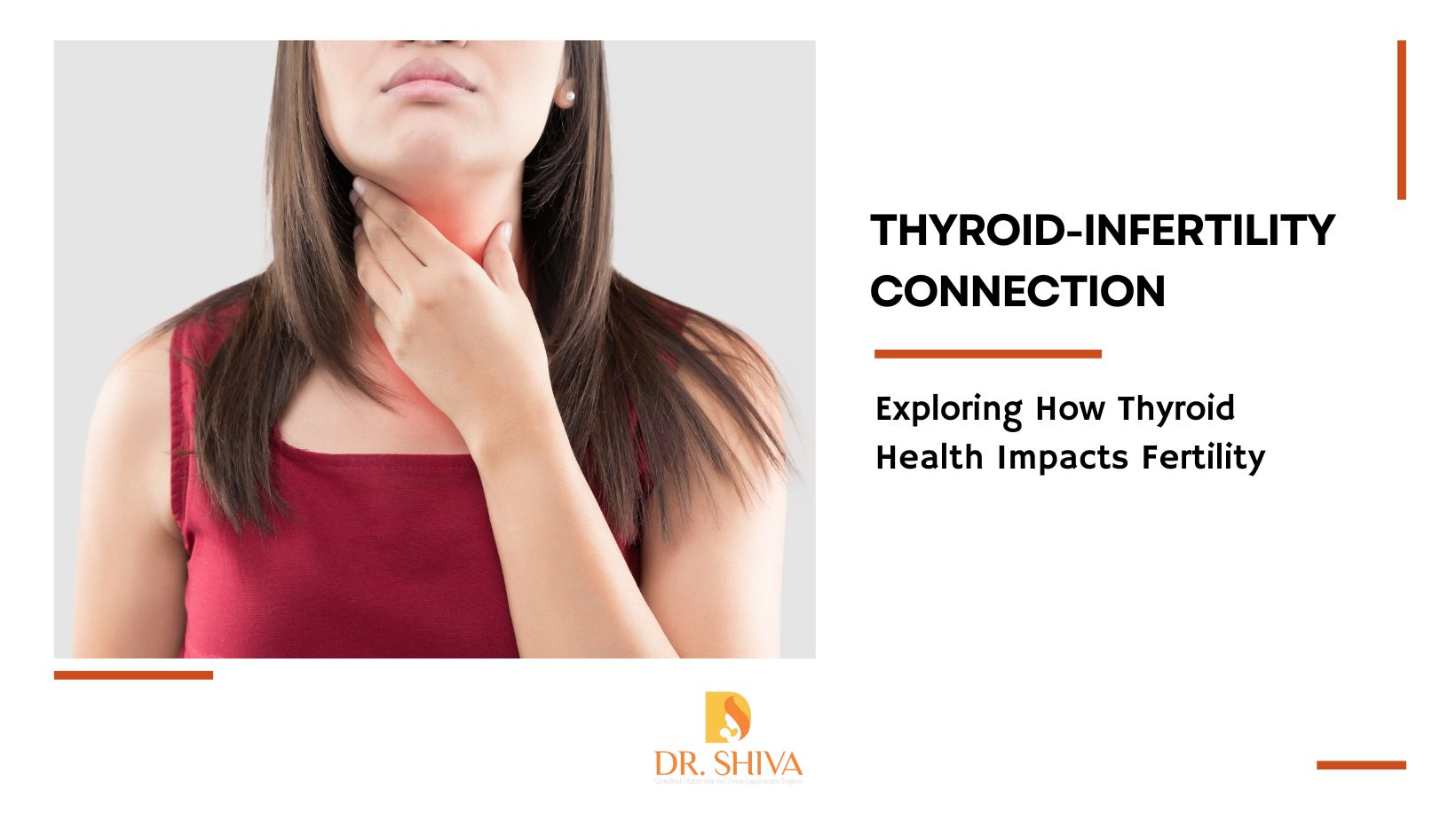
The delicate balance of hormones within the body plays a crucial role in various bodily functions, including fertility. One hormone-producing gland that significantly influences fertility is the thyroid gland. Thyroid disorders, such as hypothyroidism and hyperthyroidism, can disrupt this balance and have a substantial impact on a woman’s ability to conceive. In this blog, we will delve into the intricate relationship between thyroid health and infertility.
Thyroid Function and Fertility
The thyroid gland, located in the neck, produces hormones that regulate metabolism, energy production, and various bodily processes. These hormones, namely thyroxine (T4) and triiodothyronine (T3) are instrumental in maintaining the body’s overall hormonal equilibrium.
Thyroid disease will affect one out of every eight women during their lifetime, potentially leading to complications in conceiving and carrying a pregnancy to full term.
Hypothyroidism and Fertility
Hypothyroidism is a condition characterized by an underactive thyroid gland, resulting in insufficient production of thyroid hormones. This condition can
- disrupt the menstrual cycle
- lead to irregular or absent ovulation.
- affect the health of the uterine lining, making it less receptive to embryo implantation
These factors collectively contribute to decreased fertility. There is also an increased risk of early miscarriage or preterm birth.
Symptoms of hypothyroidism
- Heavy menstrual cycles
- Fatigue
- Gain in weight
- Muscle aches
- Puffy face
- Cold intolerance
Hyperthyroidism and Fertility
Conversely, hyperthyroidism, an overactive thyroid, can also impact fertility. Women with hyperthyroidism might experience irregular menstrual cycles and disrupted ovulation. The increased metabolism associated with hyperthyroidism can lead to weight loss, which can affect the reproductive system’s functionality. Moreover, hyperthyroidism can sometimes cause irregular hormone levels that hinder conception. Graves’ disease is one of the most common causes for an overactive thyroid or hyperthyroidism.
Hyperthyroidism can cause fertility issues in men. It can result in a significant decrease in sperm count which can in turn cause decreased fertility.
Symptoms of hyperthyroidism
- Weight loss despite having increased appetite
- Sensitivity to heat and sweating
- Anxiety and rapid heartbeat
- Diarrhea
Thyroid Antibodies and Fertility
Thyroid autoimmunity, characterized by the presence of thyroid antibodies, can influence fertility even in the absence of overt thyroid disorders. That means the thyroid hormone levels will be within the range, but thyroid antibody count can affect fertility. Thyroid antibodies are markers of immune dysfunction that can impact implantation and increase the risk of miscarriage.
Thyroid issues during pregnancy
If you have become pregnant and have a history of thyroid issues, make sure to inform your doctor. The doctor will suggest a thyroid function test, and if any variation has been identified you may be provided with the lowest dose possible to ensure that the baby is not affected. You will need to take regular blood tests during the pregnancy to ensure the thyroid levels are within the limits else to change the dosage levels.
Seeking Balance and Solutions
The good news is that addressing thyroid-related fertility challenges is possible. Regular thyroid function testing is essential, especially for women struggling with infertility. If a thyroid disorder is detected, treatment options such as hormone replacement therapy for hypothyroidism or antithyroid medications for hyperthyroidism can help restore thyroid balance. For women with thyroid antibodies, early intervention and management can improve pregnancy outcomes.
Conclusion
The thyroid’s intricate connection with fertility underscores the importance of holistic health when planning to conceive. Understanding your thyroid function and seeking medical guidance if any issues are detected can significantly improve your chances of achieving a successful pregnancy. If you’re experiencing fertility challenges, it’s advisable to consult with both a reproductive endocrinologist and an endocrinologist specializing in thyroid health. By addressing thyroid-related factors, you can enhance your fertility journey and move closer to the dream of starting or expanding your family.

Recent Comments